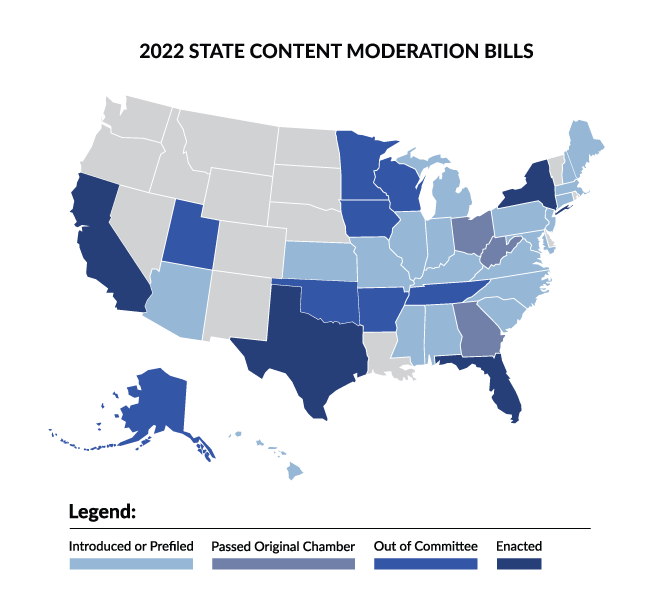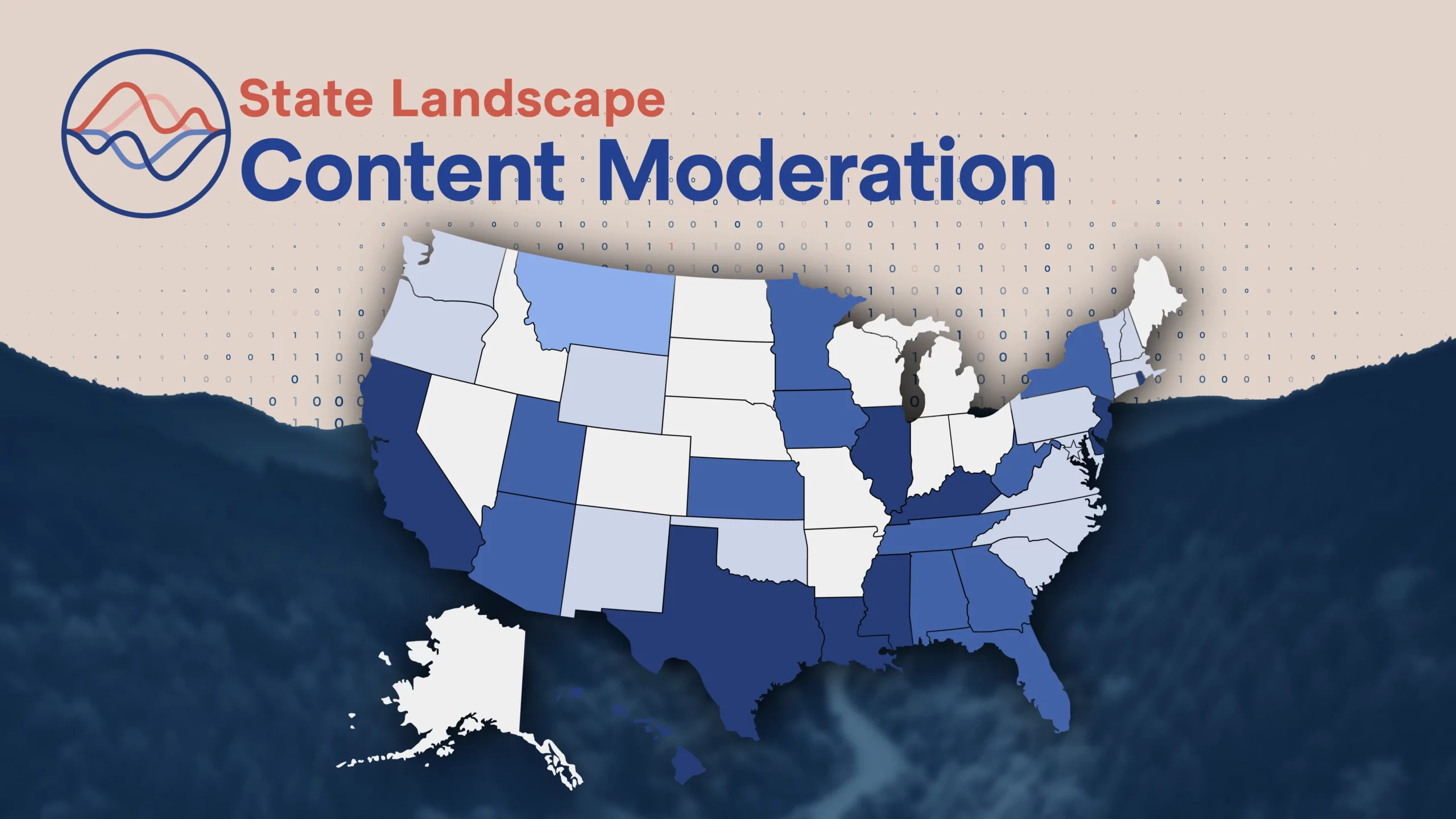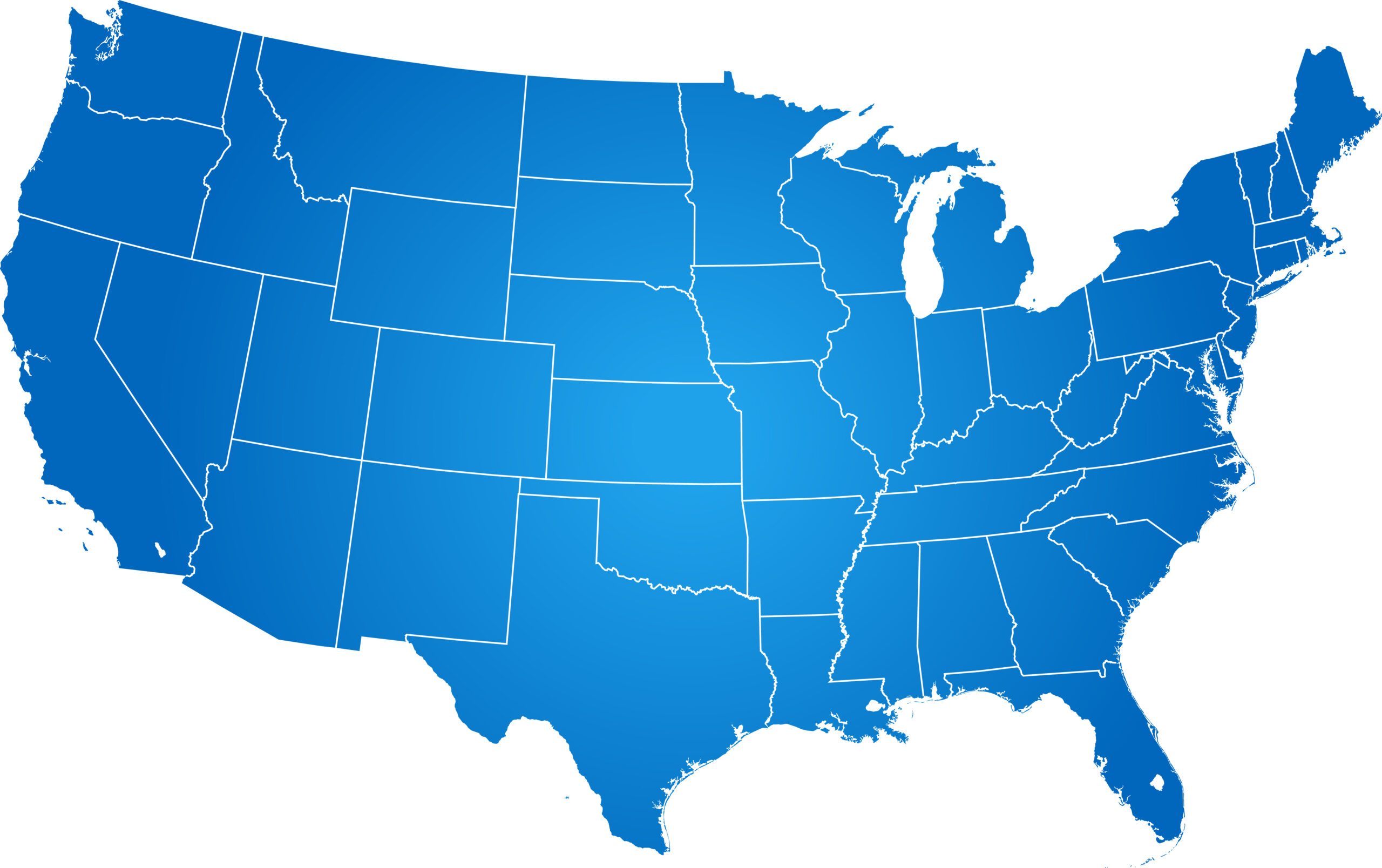State Content Moderation Landscape Update and Look to 2023

We are two weeks past the 2022 midterm elections and this year’s election advanced state leadership on a number of issues. States have become the new battleground for policy making and influencing, especially with regards to content moderation. But before we preview how the content moderation debate could play out in 2023, we first have to review past and ongoing trends.
State lawmakers began their own initiatives to regulate online content moderation around 2018. Since 2021, states have introduced over 250 bills to regulate content across digital services’ platforms, though often with the intent to target leading tech companies alone. Many states are considering or have enacted content moderation legislation. However, much of this legislation risks conflicting with federal law, including Section 230 of the Communications Decency Act which, as our resource page elucidates, is integral to the function of the Internet.
Many states are changing to one-party rule in this election cycle and state legislation will therefore be much easier to pass. Over the past year, legislators have pursued multiple kinds of content moderation measures (more deeply covered in CCIA’s Content Moderation Landscape), the most problematic of which often center on perceived “censorship,” the establishment of an oversight body, disclosure and auditing or testing requirements for algorithms, increased content removal, and resolutions calling on Congress to amend or repeal Section 230, among other foci. Certain states to be aware of are California, the District of Columbia, Florida, Minnesota, New York, Ohio, Texas, and Wisconsin.
California is a key battleground state in this debate due to the number of proposals that have been put forth and the influence they have on other states following suit. One of California’s more noteworthy bills to take note of is AB 587, which compels digital services to release confidential information regarding internal practices. The passing of legislation in California has encouraged states like New York to pursue similar legislation such as New York’s SB 9594 and SB 9563, replicas of California’s AB 587 and AB 2273 respectively.
Looking to 2023, where control over Congress will be split between Republicans and Democrats, we anticipate the GOP-led House of Representatives will pursue noisy hearings and legislative vehicles targeting Section 230 and alleged ‘censorship’ complaints. Democrats have also made content moderation a priority but the parties do not agree on what should be done in this regard and so the likelihood of carefully negotiated federal legislation on Section 230 is unlikely to become law.
While we’ll likely see gridlock in D.C. on content moderation, due to the midterms more states have shifted to one-party rule, making them the center point in this debate. Furthermore, while we’re likely to see a greater number of state proposals on content moderation and digital platforms in 2023, the proposals themselves have and will continue to face many challenges, including legal challenges over whether they are constitutional. These bills’ litigation costs, common carrier regulations, burdensome provisions, private rights of action, lack of evidence-based policymaking, and the patchwork of regulations that emerge from these state efforts could very well hamper U.S. companies from competing and innovating at home and abroad. DisCo has previously discussed the high cost of state-by-state content moderation.
Finally, while many states are moving forward with their content moderation proposals, other states’ bills, such as Florida’s SB 7072 (which DisCo has previously discussed) and Texas’ HB 20, are undergoing rigorous litigation. Many of these emerging state bills that are simply following in others’ footsteps could also end up in the courts. Any legislation put forth must be carefully considered, otherwise it could end up in wasteful litigation or even harming both competition and consumers by breaking reliable digital services.
Learn more about the content moderation landscape here.








